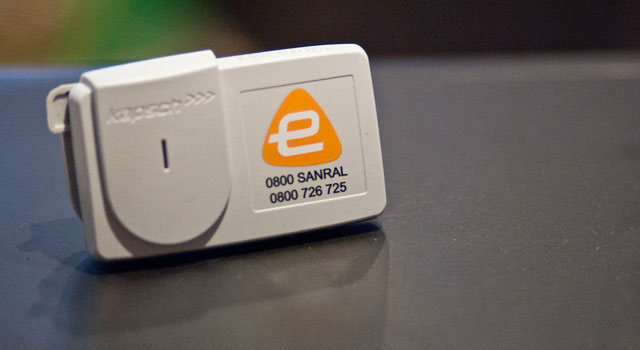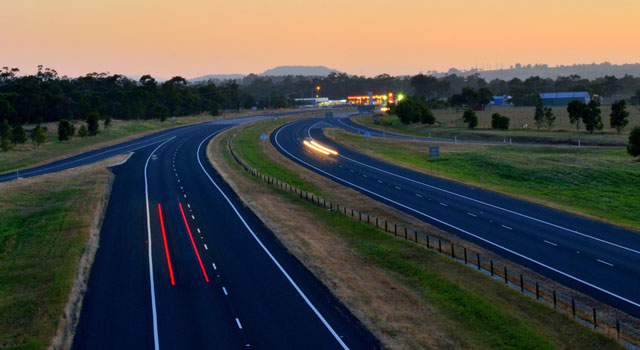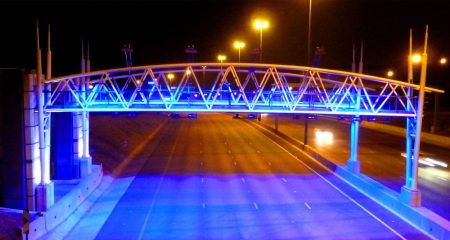
Roads agency Sanral on Monday made known its intention to issue “high-value civil summonses against mostly companies”.
Alex van Niekerk, project manager for the Gauteng Freeway Improvement Project (GFIP), said this is the end of the process of trying to get people to pay without going through lawyers.
“We had the less 60% campaign and during this campaign people were contacted with outstanding debt and indicated that they refused to pay. And, in accordance with the responsibilities we have, we must now continue with the next step,” he said.
Although it is highly unlikely that any vehicle owners with relatively small amounts owing will receive summonses — because it costs Sanral money to pursue each case and thus the amount outstanding must be worth the trouble — Justice Project South Africa chairman Howard Dembovsky says the most important thing for them to remember if they do, is to settle the amount or go to court and defend their case.
Even for an arbitrary figure of R1 000 (which Sanral would never go after you for), Dembovsky says it could still be a very costly exercise to ignore it.
“Because what happens is, you don’t arrive in court and the debt collectors will add all of their fees to the amount claimed from you; the lawyers’ fee will be added to it … the amount you will end with is a rough estimate of around R3 000.
“And then, if you get a default judgment issued against you, they can take your TV and your lounge suite because in their estimations they can only get R3 000 for it at an auction. There’s is no guideline that says they cannot attach goods to the value of R100 000 for a debt of R3 000, for example. And they’ll take what they believe will hurt you the most,” he says.
One of the fears held by many e-toll defaulters is that their credit rating could be impacted by not paying, but that appears to not be the case. According to the legal team at credit bureau Transunion, the provisions of the National Credit Act (NCA) are excluded from being applied to the levying and collecting of tolls in terms of the Sanral and National Roads Act.
“Accordingly, credit information which can only be accessed in terms of the NCA, cannot be utilised for purposes of tracing or listing of debtors for collection of amounts in terms of these acts,” Transunion said. “This statement has been adopted by the Credit Bureau Association of South Africa.”
Better to pay the bill
John Price, director at legal firm Findlay & Niemeyer, said that he would like to see the opposition to e-tolls tested in court, but does not believe that the South African justice system has the capacity to handle the raft of cases that would come in if Sanral were to pursue all e-toll defaulters.
Said Price: “If someone owed R200, and they challenged their summons on constitutional grounds … I don’t think the highest court would hear a case disputing R200. Not even a magistrate. You would also have to consider whether it was worth it to challenge that sum of money in a court case that would cost far more than that. Surely there will be many instances where it is just better to pay the bill.”

Dembovsky described Sanral issuing summonses as its biggest blunder yet.
This, he said, will see anybody who is issued with a summons take Sanral on in court and uncover the many holes in the embattled road agency’s operation.
“This is Sanral’s end game and they have played the wrong card,” said Dembovsky. “Because … they are going for people who allegedly owe them millions, and those people have got the money…. If you were the CEO of a large corporate that owed millions in e-toll fees, would you sit and ignore it, knowing you would get a default judgment (or would you fight it with the best legal team you could afford)?”
Strongest defences against e-tolls
According to Organisation Against Tax Abuse (Outa) chairman Wayne Duvenage, each summons will differ in amounts owing and circumstances under which Sanral will be prosecuting companies and individuals, so it is not yet possible to say whether the agency has good grounds or not. There are many possible defences that one can argue, but it depends on the case brought forward.
One such defence, according to Duvenage, is based on the notion that the government didn’t follow due process and paid 300% more for the road upgrades than was necessary.
“There are many defences,” says Duvenage. “We have a lot of members that were paying their e-tolls but stopped paying because of things that were irreconcilable. They have written to Sanral and not received responses. Their queries and disputes haven’t been resolved.”
Another defence, according to Dembovsky, is that Sanral does not possess certification for its equipment in terms of the Legal Metrology Act of 2014, or the Trade Metrology Act that preceded it, which speaks to the legal specifications for any electronic equipment used for measuring.
“The onus is not on you to prove that you don’t owe that money — it’s on them to prove that you do,” said Dembovsky.
Duvenage said Outa will fight the case for its members but non-Outa members will have to make a choice whether to settle with Sanral, or hire an attorney to defend themselves.
“But you can’t ignore the summons,” he said.
- This piece was originally published on Moneyweb and is used here with permission




